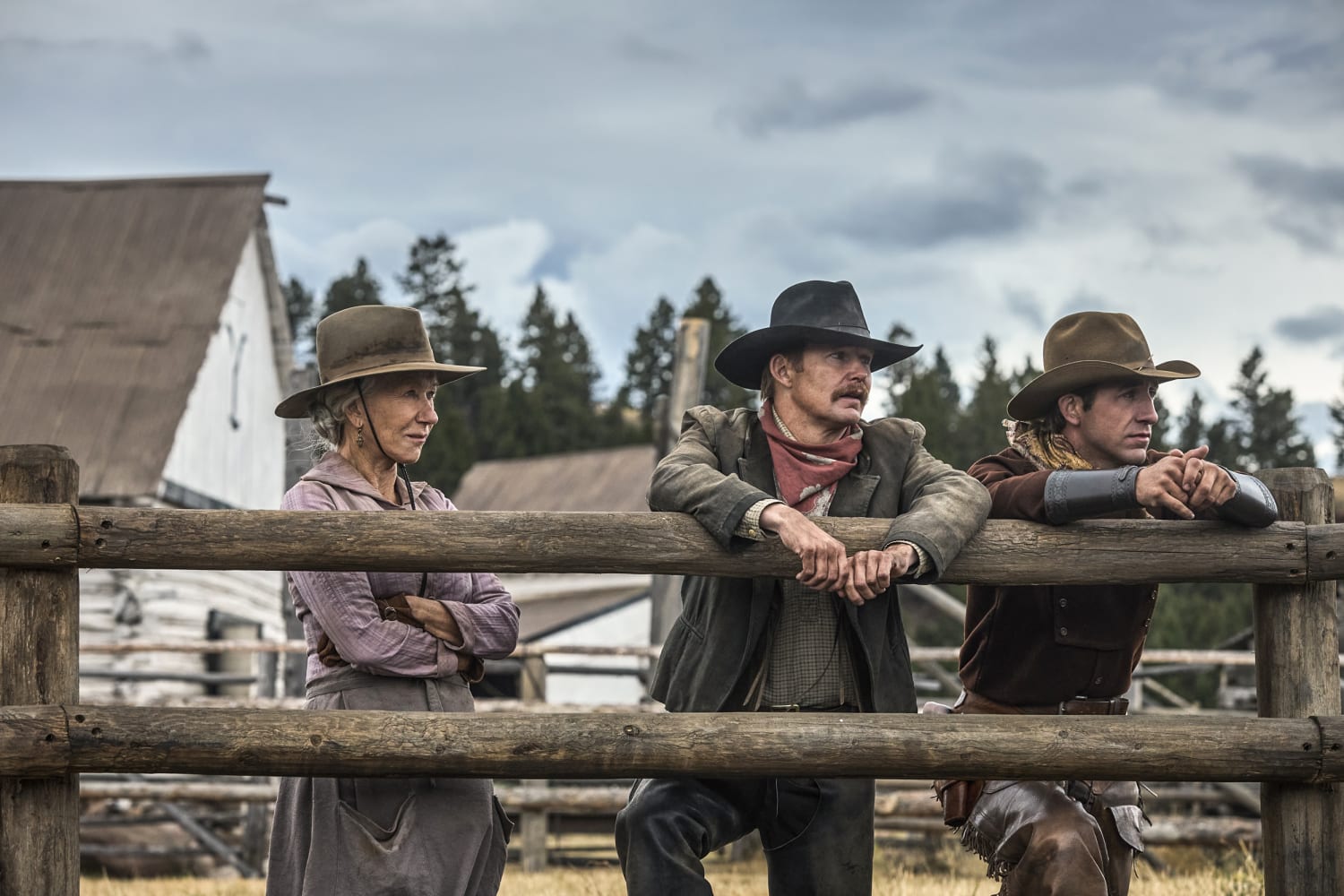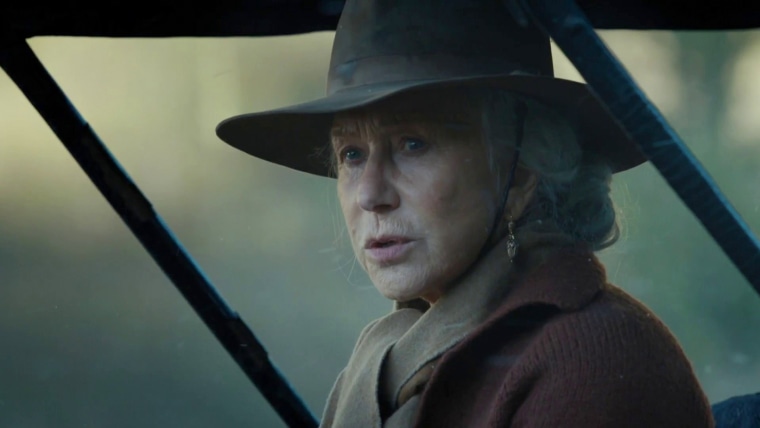Limited series “1923” comes riding into homes on Sunday night, hoping to capitalize on the huge success of Paramount’s neo-Western hit “Yellowstone.” The wealthy cowboy soap has already spawned one prequel, “1883,” which debuted a year ago and starred platonic cowboy ideal Sam Elliott and country star Tim McGraw as a Union and Confederate odd couple. “1923” is “1883’s” sequel, and features the stunning A-list pairing of Harrison Ford and Dame Helen Mirren as Jacob and Cara Dutton, a couple who fought and bled and murdered their way through the Western expansion, prohibition and the Great Depression to build their family fortune.
Cultural critics love prestige series. This can sometimes cause us to ignore what’s truly popular, and why.
It’s a grimmer chapter of an ongoing story, and one that is plagued by an inability to articulate why these white men murdering their way across the landscape are heroes worth rooting for.
Cultural critics love prestige series. This can sometimes cause us to ignore what’s truly popular, and why. Few celebrated the end of the toxically misogynist “The Big Bang Theory,” or have seemed eager to discuss the resurgence of seemingly endless police procedurals starring white men. CBS in particular has worked hard to appeal to aggrieved white males, with hits starring the steely Mark Hamilton as Leroy Jethro Gibbs on “NCIS” and the mustachioed Tom Selleck as Frank Reagan on “Blue Bloods.” The network says it wants to lean into diversity, but parent company Paramount is still following a very familiar formula with granite-voiced obelisk Kevin Costner as John Dutton III in “Yellowstone.”
Indeed, “Yellowstone” initially flew under the critical radar, largely dismissed as a muddled melodramatic mess. But the series has gained viewership year over year, with subsequent spinoffs debuting on new flagship streaming service, Paramount+. Like other dramas of the rich and privileged, the Dutton clan’s drive to maintain its wealth in a changing landscape is compulsively watchable. Unlike it’s more celebrated dramatic counterpart “Succession,” these are wealthy cowboys in leathers, not media moguls in suits. But their fortune, a tract of land the size of a European nation state, is as under threat by 21st century technology as it is by changing attitudes. From Silicon Valley-backed venture capitalists to Native tribes demanding reparations, cattle branding and horseback riding are under siege. And all of the scheming and violence and sex is almost enough to obscure the show’s inability to articulate why this way of life is worth saving. Like so many white male grievances, to question the logic is to side with the enemy.
“1923” does make some improvements. Mirren’s true co-star billing as Irish immigrant Cara is a first for the franchise and one of its selling points. Not that Mirren is some sort of classic lady; women in the “Yellowstone” world are only respected if they are twice the “men” their husbands are. (Indeed, Mirren’s entrance in the premiere features her outdrawing and out-reloading her opponent before filling him with gunpowder and lead.) Ford, like Costner and Elliott before him, looks like a natural in cowboy hats and pistol holsters — no one will doubt Jacob Dutton shot first — and at 80, his face feels carved from the side of a mountain. (It helps that Ford aiming a weapon is already an iconic American image.) And the chemistry between husband and wife is palatable — having “just enough romance” is one of “Yellowstone’s” ways of drawing in female viewers — and offers a compelling portrait of a lifelong love story, albeit one drenched in blood.
But the show’s decision to go global, with cousin John Dutton exploring the plains of central Africa, highlights once again the problems inherent to this sort of worldview. Actor Brandon Sklenar makes a compelling Great War veteran whose PTSD renders him unable to go home again. And like Ford and Mirren, he’s got the talent to keep you watching. But the storyline feels out of place, and the showrunners’ inability to dig into white privilege is more pronounced when there’s no assumed manifest destiny excusing it.
But perhaps the biggest problem, like with “1883,” is that these prequels feel so dramatically unbalanced. “Yellowstone” works because it is about the lives of the 1%; their giant lodge is as much symbol of their singular success as the giant glass buildings and Scottish castles in “Succession.” These earlier prequels of bootstrapping Dutton relatives clawing their way up the ladder are much darker, and lack the soapy drama needed to offset the ugliness. Superfans may not care. But will new audiences blindly accept that these ends justify the means?
Source: | This article originally belongs to Nbcnews.com










